Kyoto Guide: Exploring the Famous Fushimi Inari Taisha – Path of Wishes with Countless Vermillion Torii

Many people who visit Kyoto will stop by Fushimi Inari Taisha (shrine). The Senbon Torii (one thousand torii gates) lives up to its name and has become a majestic sight attracting visitors from every corner of the world.
The Shrine Grounds are a Melting Pot of Tourists

We visited Fushimi Inari Taisha towards the end of November. Even though we arrived early in the morning there were already many visitors such as students in uniform, energetic elderly people and people with expensive cameras. The people that stood out the most were foreign tourists from all over the world. A sight fitting for Kyoto, a city of international tourism.

After you finish the purification process of washing your hands and rinsing your mouth, you will go through the large romon gate. This romon is one of the largest for shrines in Japan, and was built in 1589 by Toyotomi Hideyoshi.

Next we will visit the main shrine. The main shrine was lost during a war in the Onin period, but was rebuilt in 1499. You can see the Azuchi-Momoyama period characteristics from the beautiful decorations. It is also designated as a national important cultural property. It is said that there are 30,000 Inari shrines around Japan. Fushimi Inari Tiasha is the head of them. It dates back to 711 when gozoku (powerful family/clan) Hatano Irogu worshiped the three main gods at Mitsugamine in Mt. Fushimi.
Known as a deity to that will grant wishes such as great harvest, prosperous business and safety for family members, it is a shrine that had many followers from common people to statesman.

Known as a deity to that will grant wishes such as great harvest, prosperous business and safety for family members, it is a shrine that had many followers from common people to statesmen.
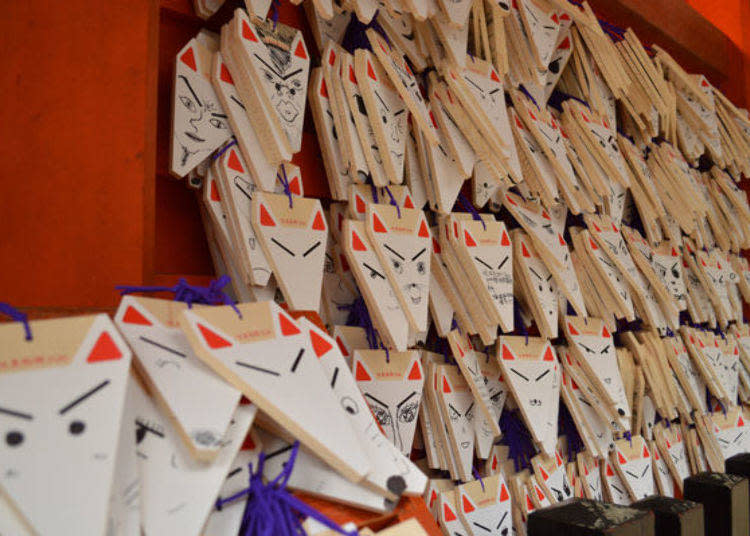
▲An unusual Byakko ema (wooden boards to write down wishes and prayers). People draw different fox faces along with their wishes
One Gate for Every Wish that has Been Granted: Walking Down the Mystical Path
The path to Okusha Hohaisho from the main shrine is about 150 meters, this tori-packed path is called Senbon Torii (one thousand torii). Many visitors stop and take in the mystical sight. Even with many people walking through the vermillion colored path, it is filled with silence.
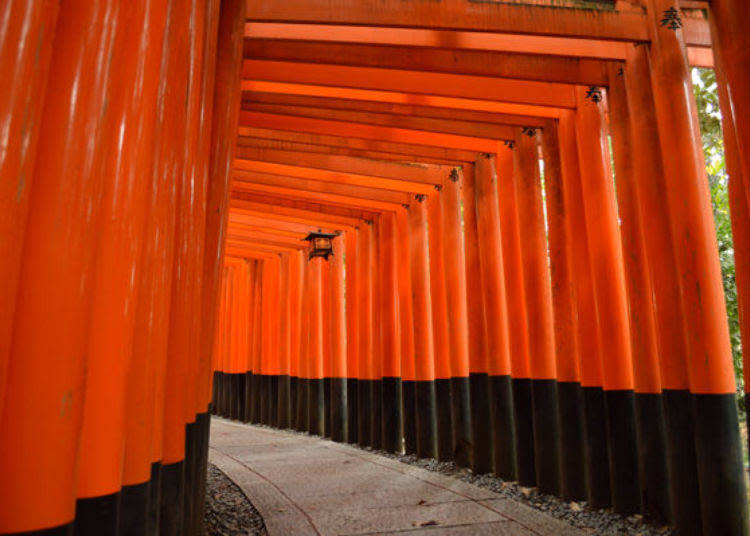
▲Vermillion is a bright color of hope like red and crimson. Sun, life and birth gives power to the spirits of Inari Daijin
These torii were donated out of appreciation for their prayers being answered. It is a proof that the people’s prayer has been answered. This tradition started in the Edo period and has continued to this day.
The Path of Wishes and Prayers beyond Senbon Torii

After passing through Senbon Torii, you will reach Okusha Hohaisho that worships Mt. Inari from afar. There are many visitors that go back from return to the entrance form there, but there is still a path of prayers that continues. It is said that god descended to Mt. Inari. One could say that Oyama Meguri, the 2km walk to the peak, Ichinomine, is the true experience for worshiping. If you have the time and energy we recommend going all the way.
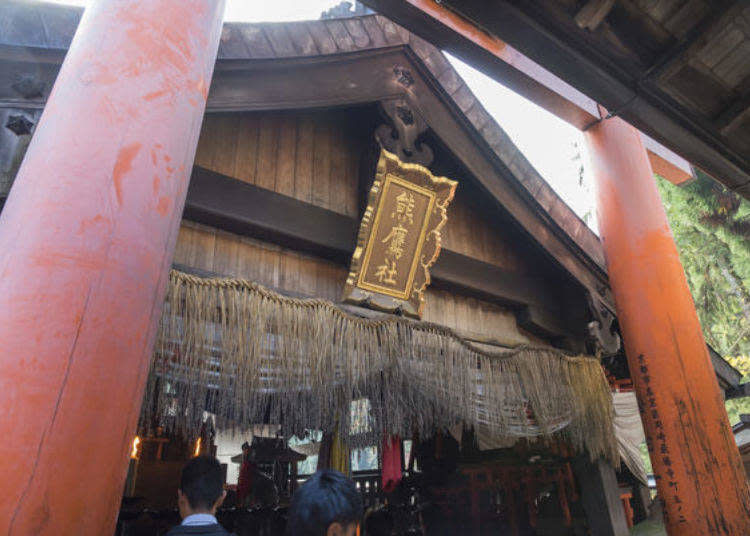
▲Kumatakasha. A stone prayer area sticking into the pond, an Otsuka worshipping stone for the deity Kumataka Okami can be found here.
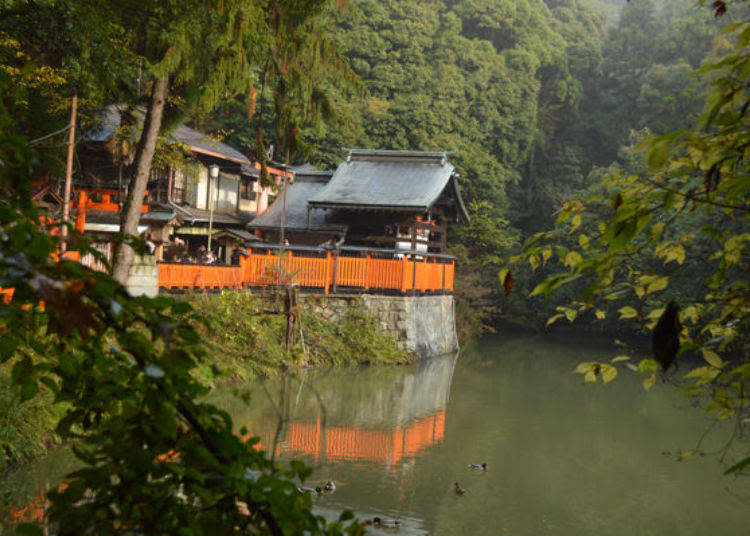
▲The Shin-ike pond and Kumatakasha. There is a legend that if you clap your hands in front of the pond, the direction that the echo returns from is where missing person you are looking for can be found.
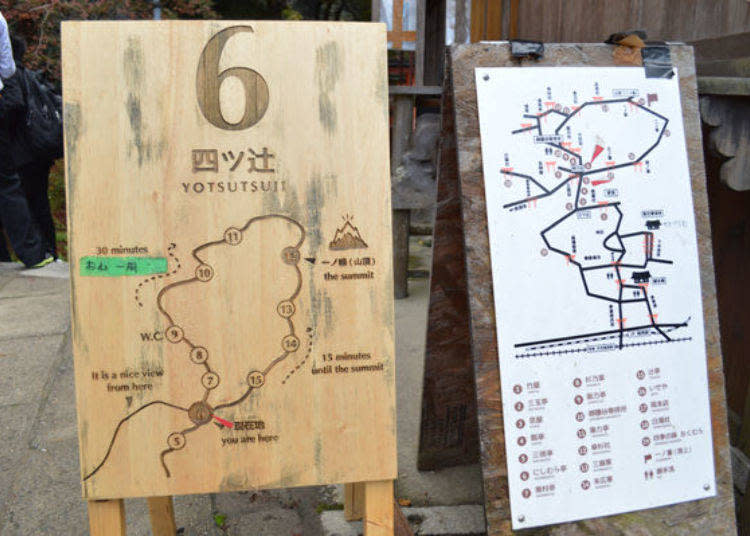
▲At the halfway point Yotsutsuji, there is an information board in English. Just a little more to Ichinomine summit
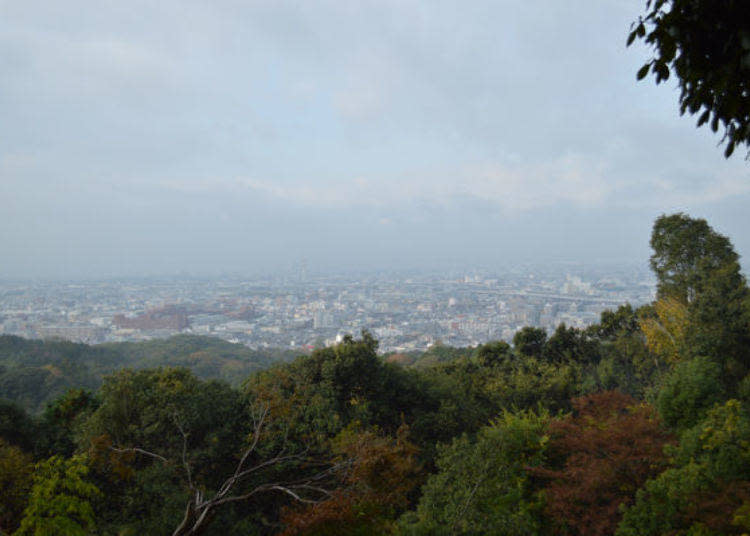
▲The view from around Yotsutsuji. A great scenic point where you can see the southern part of Kyoto, and a great place to take a small break.
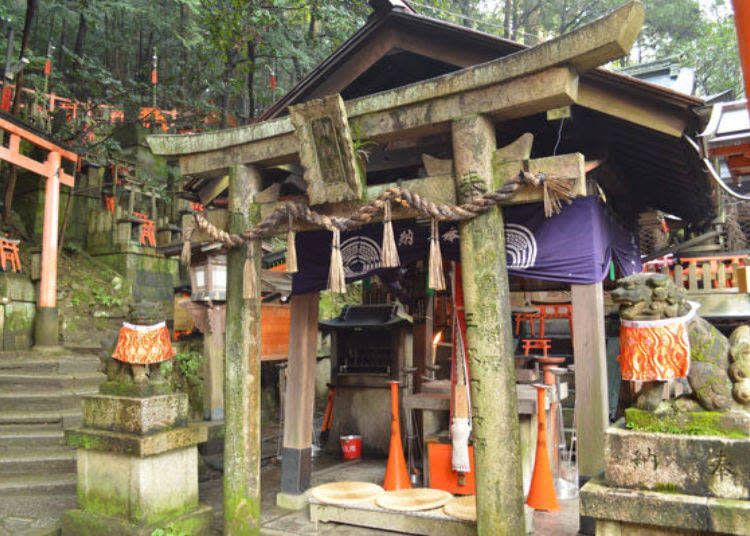
▲Mitsurugisha. Listed as Kaminarishi Ishi on an ancient map, it is a place of worship just like Mitsugamine since ancient times.
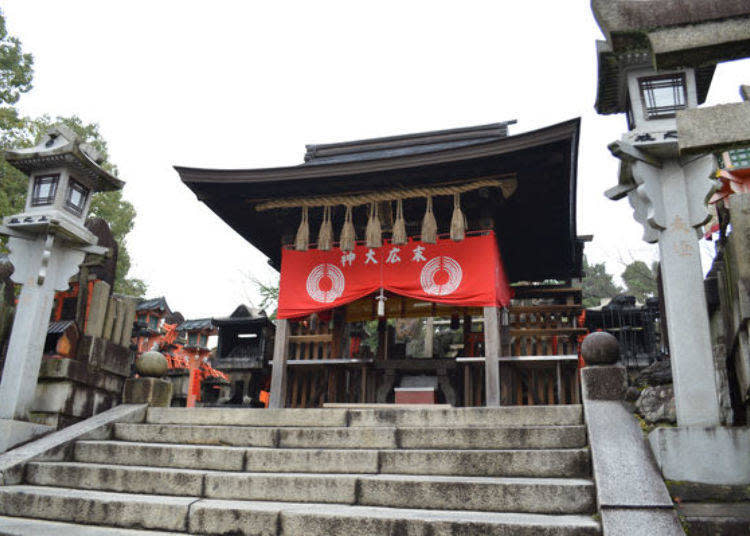
▲After getting past Kiri no Mori, you will reach Ichinomine sitting at the peak of Mt. Inari at an altitude of 233m. Here the deity Suehiro Okami is worshiped.
The path to and from the peak is not easy. However as you climb each step you mind will be clear of any thoughts. This may be the true form of prayer and the charm that attracts people from all over the world. Walk through path with vermillion torii with a clear mind. We hope you stop by Fushimi Inari Taisha and walk the path of prayers so your wish comes true.
Fushimi Inari Tiasha
68 Fukakusa Yabunouchi-cho, Fushimi-ku, Kyoto-shi, Kyoto-fu
075-641-7331
Hours: All Day (prayer: 8:30 AM – 4:30 PM, shrine office: 7:00 AM – around 6:00 PM)
Text by:Myogaya Nobuhisa


